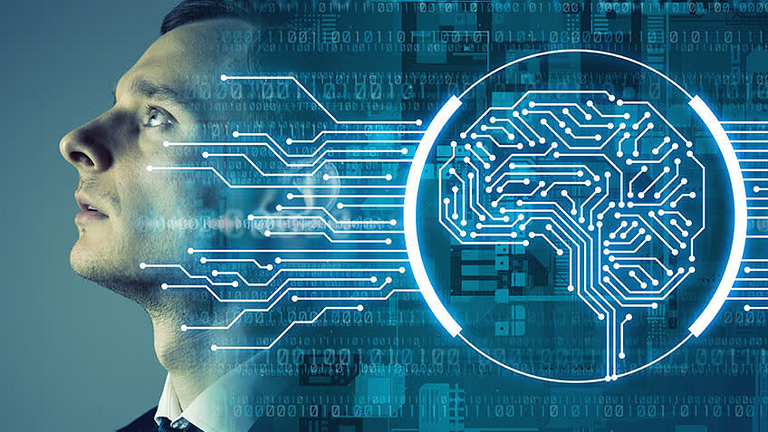Software 3.0: AI Agents Taking Over
We discuss the concept of Web 3.0 a great deal. This is something that is an encompassing idea. There are many components feeding into this.
In other words, just like the present state of the Internet, there are many pieces that were assembled over time to bring it together.
Thus, it is applicable for us to delve into the evolution of software. This is something that is crucial to where we are going. We did touch upon it by talking about AI agents. However, it is best to dive in a bit deeper to structure the framework in a way that is easy to follow.

Software 3.0: AI Agents Taking Over
AI agents are going to be the next big thing. It is the basis for Web 3.0. We are dealing with a completely new form of compute, something that will accelerate the expansion of the digital world.
So what is Software 3.0? To get this answer, we have to look at the progression of software development over the years.
It all started with human programmers. This makes sense since this is how we moved from the electronic to digital age.
Over the decades, people were coding, developing products line-by-line. This was Software 1.0. This uses languages such as Python, C++, JS, or CSS. Basically, by writing each line of code, the individual identifies a specific point in the program space with some desirable behavior.
Software 2.0 came about due to neural networks. This is not written in language we are familiar with. In fact, humans are pulled back from the process to a great degree.
The transition to Software 3.0. Here the programmer provides a set of instructions and a dataset, which are taken by the AI agent to generate the code. The output is human readable which is also fed into the neural network.
It is this progression that is leading people like Jensen Huang of NVIDIA to conclude that human coders might be obsolete in the next 5 years. We are likely to see massive improvement in the ability for these agents to produce code, far surpassing what the average coder can do.
Fine Tuning LLMs
Large language models (LLM) have captured a great deal of attention. This is the basis for a lot of advancement that is taking place in this arena.
That said, it is not the only game in town. It is, however, what the majority of people are familiar with since hundreds of millions of people have used chatbots.
The ongoing steps forward will include taking these LLMs and fine tuning them for specific outcomes. Here is where something like Meta's Llama3 could be used to train a program on real estate law. This could be specific to a particular are, such as a state or province. The software will not focus upon general topics. Instead, it is have laser focus for those in the industry.
Agents can be used to fine tune the LLMs to arrive at the desired goals. It becomes a tweaking process.
The Internet of AI Agents
When it comes to the digital world, what do most companies have? Email and a website. These are the essential components in this era. If you do not have them, you are not in business.
That will likely change in the future. We are going to see a time when each business has an AI agent. This will replace the website and coordinate all online activities. It is probable that the agent will interact with those of individuals, creating an autonomous system.
Information will flow back and forth, providing whatever is needed. All correspondence goes through the agent, with the majority of interaction being handled by it.
The agent will also coordinate with the rest of the company. Shipping and billing are two examples of areas that the agent would interact with. customer service departments will not employ humans. Those issues are handled by the agent.
Many companies will form around the prospect of taking LLMs and fine tuning them for specific purposes. My guess is we see industry-specific software before moving onto individual companies. The transition time might not be that long. The skills associated with these agents is growing rapidly.
Software 3.0 is going to lead to the time when there are tens of billions of agents. We should not be surprised if every individual is able to program them at some point. LLMs are bringing the ability to associate with computers in natural language. This is huge. No longer will the traditional coding languages going to be required.
Of course, this gets very interesting when AI agents meet up with robotic agents.
It all is a part of the expansion into Software 3.0.
It is a fact that we are moving forward and artificial intelligence is an example of that forward movement of humanity. It seems that we are approaching the age of Hollywood movies. We develop things to make life easier and to mechanize things. Perhaps there is no need for personnel anymore. No need for many jobs. Maybe the team of robots can defeat the selected team of the world!
😱
To be honest, there is no need for many of the jobs anyway. There are a lot of bullsh*t jobs out there. About 15 years ago, there was a paper along with a book that was written about this.
To be honest it already feels that way. Big companies have procedures and people working in customer service don't dare to deviate from them, even if it means abandoning all good will, logic, decency and leaving customer unhappy. AI agents might actually be an improvement.
Indeed it is the way things are going already. We are only going to see it advance in the future. Fortunately, the technology should get better so the answers you required will be available.
(●'◡'●)